Unpaid care is work
08.03.20
International Women's Day - 'Time to Care’, the Oxfam report released earlier this year, put the spotlight on the link between global inequalities and an issue at the core of our work: unpaid care work. We say it is high time this invisible work mostly done by women/mothers is recognized and valued for what it is: essential work.
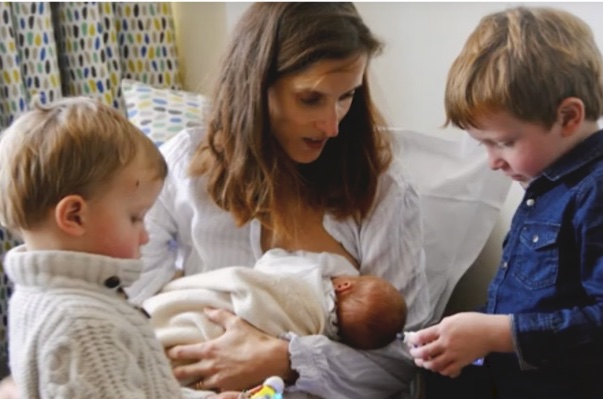
The following Statement was written by Anne-Claire de Liedekerke, President of Make Mothers Matter, on the occasion of International Women’s Day 2020.
![]() MMM International Women’s Day 2020 Statement: Unpaid Care work is work
MMM International Women’s Day 2020 Statement: Unpaid Care work is work
At MMM, we have been applauding the Oxfam report1 since its publication earlier this year. The report shows a documented connection between unpaid care work and women’s poverty.
Two paradoxical realities are important to bear in mind if we want to act on this unfortunate link: the fundamental necessity of unpaid care work and its real yet invisible economic value.
 Unpaid care work is everywhere. The need for care is part of our humanity. All of us were, are or will be in need of care. We all were born needing constant care.
Unpaid care work is everywhere. The need for care is part of our humanity. All of us were, are or will be in need of care. We all were born needing constant care.
This issue has been at the core of MMM’s mission since its creation in 1947, because mothers all over the world have always been the most important carers. A mother’s care is vital to a child’s physical and emotional development.
“Care is at the heart of humanity. All human beings are dependent on care, as both recipients and providers. Care is necessary for the existence and reproduction of societies and the workforce and for the overall wellbeing of every individual. The very essence of having independent and autonomous citizens as well as productive workers relies on the provision of care.” 2
 Furthermore, care matters for a child’s brain development: “Advances in developmental neuroscience are causing a revolutionary shift in the way we think about child development, as we learn about the impact of both positive and negative experiences – and the interplay of experiences and genetics on the developing brain… How a child is nurtured and cared for early in life has a direct impact on brain structure and function. It further highlights the importance of positive parenting and reinforces the evidence that stimulation, caregiving, attachment, bonding and creating safe contexts for children, all have a positive influence on their brain development and can help children grow, learn and thrive.” 3
Furthermore, care matters for a child’s brain development: “Advances in developmental neuroscience are causing a revolutionary shift in the way we think about child development, as we learn about the impact of both positive and negative experiences – and the interplay of experiences and genetics on the developing brain… How a child is nurtured and cared for early in life has a direct impact on brain structure and function. It further highlights the importance of positive parenting and reinforces the evidence that stimulation, caregiving, attachment, bonding and creating safe contexts for children, all have a positive influence on their brain development and can help children grow, learn and thrive.” 3
Just ahead of International Women’s day 2020 the UN Secretary-General delivered a powerful message about Care: “Women and girls do some 12 billion hours of unpaid care work around the world every day – three times more than men. In some communities, women can spend 14 hours a day cooking, cleaning, fetching wood and water and caring for children and the elderly. Economic models classify these hours as leisure time” 4
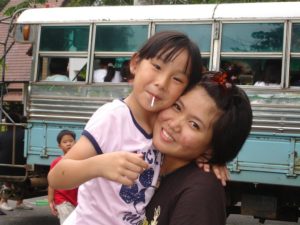 Unpaid care work is an indispensable support to the world economy. Yet it is not recognized, not valued and generates poverty and discrimination. Family care and work done within the home counts for nothing in a country’s economy as measured by GDP.
Unpaid care work is an indispensable support to the world economy. Yet it is not recognized, not valued and generates poverty and discrimination. Family care and work done within the home counts for nothing in a country’s economy as measured by GDP.
Back in 2008 the economist Nancy Folbre pointed out that “not all the inputs and outputs come with price tags attached. Somewhere along the way, babies are conceived, nurtured, educated, and launched into adulthood in a process that requires considerable time and effort as well as money.” 5
Unpaid care work has an impact on women in the professional world. There is a “motherhood penalty” suffered by women with children: the “gender pay gap” and the even larger “gender pension gap” are intrinsically linked to the “care gap”.
A set of solutions is proposed to rethink priorities, think out of the box, address and improve the situation of mothers and all carers: the “4Rs”: Recognise, Reduce, Redistribute, Represent.
Recognise
One step to take to act upon this long-lasting injustice and build a fairer world would be to “legally recognize unpaid family care work as a particular category of work that gives rights (e.g., access to social security, education and training and more)”.6
Care IS work. All mothers know that. Why is it that when you care for your own children, “you don’t work” and when you care for someone else’s children for a salary, “you work”? In economic terms unpaid care work is a productive investment with real value: the children will grow up and become workers, tax and pension payers.
All over the world mothers lack recognition for the indispensable unpaid work they do every day, caring for and educating their children, cooking, cleaning, fetching water and wood and so much more.
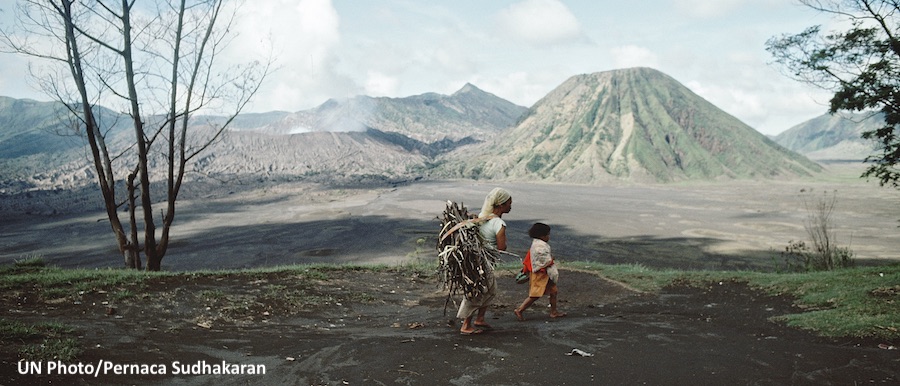
Recognition of unpaid care work is a specific target of the Sustainable Development Goals (SDGs) adopted by all United Nations Member States in 2015, a call for action by all countries – developed and developing – in a global partnership: “Recognize and value unpaid care and domestic work through the provision of public services, infrastructure and social protection policies, and the promotion of shared responsibility within the household and the family as nationally appropriate” (SGG 5 – Target 4).7
Reduce
The provision of public services, infrastructure and social protection policies is the task of Governments who have a responsibility in reducing unpaid care work done by women.
The Oxfam report says: “women are supporting the State by providing care that should be provided by the public sector”. The public sector cannot replace a mother’s nurturing care for her child, fundamental for the child’s wellbeing and development. The role of the public sector is to provide external support for families, allowing for income-generating activities for both parents, alleviating negative effects of time poverty, overwork or stress on the mother and the child.
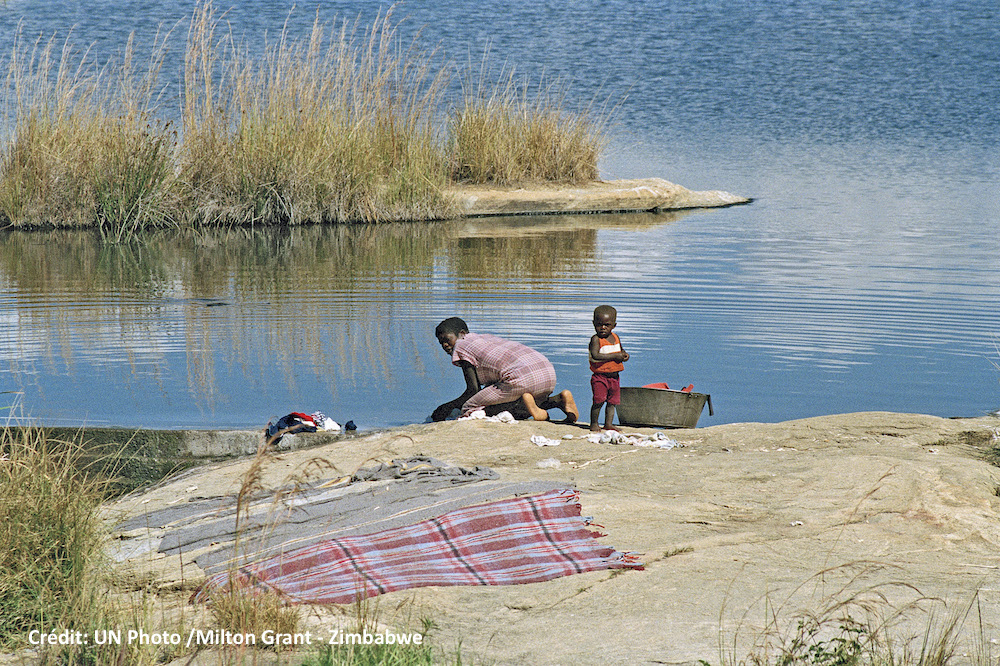
“The most formative experiences of young children come from nurturing care received from parents, other family members, caregivers, and community-based services. Nurturing care is characterized by a stable environment that promotes children’s health and nutrition, protects children from threats, and gives them opportunities for early learning, through affectionate interactions and relationships. Benefits of such care are life-long, and include improved health, wellbeing, and the ability to learn and earn. Families need support to provide nurturing care for young children, including material and financial resources, national policies such as paid parental leave, and provision of population-based services in a range of sectors, including health, nutrition, education, and child and social protection.” 8
Redistribute
The promotion of shared responsibility within the household and the family is everybody’s responsibility: mothers, who must make room for fathers; companies with family-friendly policies supporting both men and women; society at large acknowledging that mothers should not have the sole responsibility of care…
But fathers are key actors in the redistribution of unpaid care work within families. There is a growing movement around the world promoting the benefits for all family members and for the community at large, of fathers involved in care work.
Promundo’s series of reports on the State of the World’s Fathers aims to change the social norms around care work and advance gender equality. Regarding their 2019 report, they say: “This report has a big ambition: we are calling for nothing less than full equality between women and men, in the workplace and in the home. The third State of the World’s Fathers is rooted firmly in a feminist analysis of care, and the belief that unpaid care work must be valued as much as paid work, and shared equally between men and women.” 9
Represent
Making the voices of mothers heard at decision-making levels has been our mission and our responsibility. MMM has been representing mothers for more than 70 years, advocating for the recognition and support of mothers as changemakers for a better world.
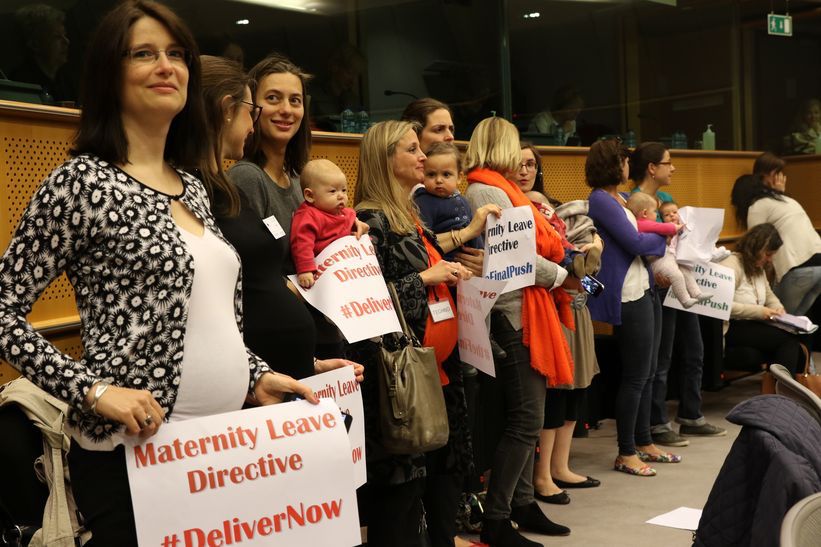
MMM in action at the EU Parliament in 2015
Mothers are agents of change because the children they care for are the future of our world and because mothers have a vision for their children and the world in which they are growing up. Women are agents of change, because when informed and supported as mothers, they can bring their own specific outlook and understanding at decision-making levels about issues that affect them as women and as mothers. The Early Childhood Peace Consortium (ECPC) of which MMM is a member of the advisory board, was founded on the premise that “children and families can be agents of change for peace.” 10
Everyone must be involved in changing the vision of unpaid care work: governments, NGOs, International Institutions, private companies, men and fathers, and women themselves.
Recognition is our collective responsibility. On this International Women’s day, we can all recognise, pay tribute to and maybe share, the unpaid work done around us by women who are mothers. Their everyday unremarkable unpaid work of care, is the backbone of our humanity and our economies.
References
- Time to Care, Oxfam, January 2020
- Laura Addati, Umberto Cattaneo, Valeria Esquivel and Isabel Valarino, Care work and care jobs for the future of decent work, International Labour Organization, 2018
- Dr. Rima Salah, Make Mothers Matter International Conference #Mothers4Peace, Acting with Mothers for a culture of peace, 3-4 May 2018, Casablanca, Morocco
- UN Secretary-General António Guterres’ remarks at the New School: Women and Power, 27 February 2020
- Nancy Folbre, Valuing children. Rethinking the Economics of the Family, Harvard University Press, 2008
- Commission on the Status of Women, Sixty-fourth session, 9-20 March 2020, Written Statement submitted by Make Mothers Matter
- https://sustainabledevelopment.un.org/sdg5
- The Lancet Series 2017, Advancing early childhood development from science to scale: key messages
- van der Gaag, N., Heilman, B., Gupta, T., Nembhard, C., and Barker, G. (2019). State of the World’s Fathers: Unlocking the Power of Men’s Care: Executive Summary. Washington, DC: Promundo-US
- ECPC, Vision and Mission
The New EU Gender Equality Roadmap : A Call for Inclusion of Mothers
04.03.25
The European Commission’s initiative on a new Gender Equality Roadmap post-2025, marks a significant step forward in addressing gender disparities across the European Union. Make Mothers Matter (MMM
Breaking the Cycle: Gender Equality as a Path to Better Mental Health
18.03.25
The Council of the European Union has taken a decisive step in recognising the vital connection between gender equality and mental health.
Europe Must Listen to Mothers: Our landmark report heads to the European Parliament
28.08.25
On 22 September 2025, the voices of mothers will take centre stage in Brussels. For the first time, Make Mothers Matter (MMM) will present its State of Motherhood in Europe








